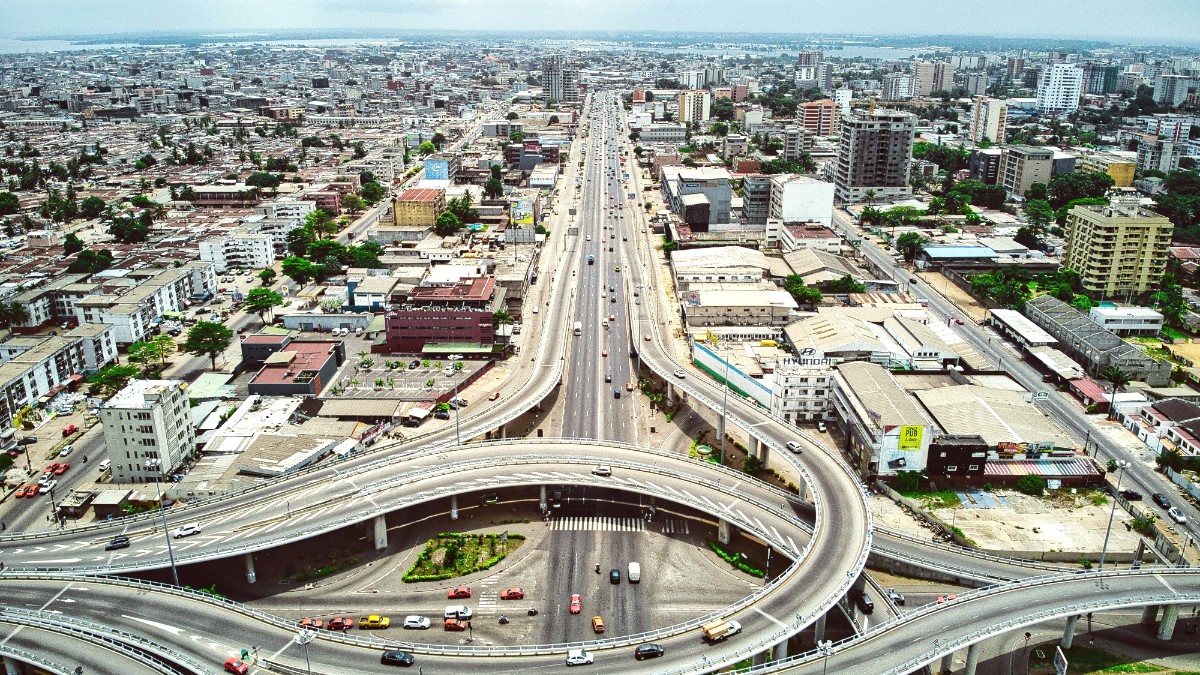
Cote Divoire
Your journey through Abidjan begins here, with guidance tailored for city discovery. Practical advice and insider tips are here, to move through Abidjan confidently and comfortably. Cultural encounters, culinary delights, or simple observation of the city's pulse are all here. It is a city that grows on you, showing new facets daily. Get ready to experience a place combining metropolitan ambition with warm Ivorian tradition.
The city's different communes hold distinct characters. The bridges connecting these parts, like the Henri Konan Bédié Bridge, are more than infrastructure; they are arteries carrying the city's ceaseless flow of people and commerce.
The city spreads out, embracing its lagoon, creating a landscape that is both watery and intensely urban.
Abidjan's history is a story of rapid growth and transformation, from a small colonial outpost to a bustling West African metropolis. The city's modern beginnings trace back to the late 19th century when French colonists established a port at Port Bouët, recognizing the Ebrié Lagoon's strategic importance. This marked the start of significant development.
After Côte d'Ivoire gained independence in 1960, under the leadership of its first president, Félix Houphouët-Boigny, Abidjan experienced a period of remarkable prosperity, often referred to as the "Ivorian miracle." The city saw rapid modernization, with the construction of skyscrapers, bridges, and grand public works. This era forged Abidjan's reputation as a dynamic, forward-looking city. Its economic success attracted investment and talent, making it a regional powerhouse.
Political instability and civil unrest impacted the country. By 1983, the administrative capital officially moved to Yamoussoukro, Houphouët-Boigny's birthplace.
Despite this shift, Abidjan maintained its status as the nation's economic, commercial, and cultural heart. Its port remains one of the busiest in West Africa, processing a substantial portion of the country's cocoa exports.
The city has consistently shown resilience, rebuilding and rejuvenating itself after periods of difficulty.
Today, Abidjan continues to grow, attracting new investments and embracing its role as a regional leader.
Its history is visible in its architecture, from colonial-era buildings in Plateau to the modernist structures of the post-independence boom. The city's diverse population reflects centuries of migration and trade.
Visiting Abidjan means walking through layers of history, witnessing the ambition of a young nation, and experiencing its enduring spirit.
The Port of Abidjan is one of West Africa's busiest, processing much of Côte d'Ivoire's cocoa exports.
Architecture from colonial-era buildings in Plateau to post-independence modernist structures tells the city's story.
Abidjan has consistently shown resilience, rebuilding and rejuvenating itself after periods of difficulty. Today, it continues to grow, attracting new investments and embracing its role as a regional leader.
It is a city of contrasts, where tradition meets modernity, and local life unfolds alongside international influences.
Abidjan pulses with relentless energy. Traffic hums, markets buzz, and music spills from open-air maquis. This dynamism defines the city. Things happen quickly, and spontaneity often guides the day.
Abidjan welcomes people from all over Côte d'Ivoire and across West Africa, alongside a noticeable expatriate community. A multitude of languages, diverse culinary traditions, and a mix of artistic expressions await. This diversity makes Abidjan a fascinating place to observe and engage with different perspectives.
The city boasts an incredible culinary scene, from humble street food stalls to sophisticated fine-dining restaurants. Ivorian cuisine, with its flavorful sauces, grilled meats, and staple starches like attiéké and alloco, invites exploration.
The city boasts an incredible culinary scene, from humble street food stalls to sophisticated fine-dining restaurants. Ivorian cuisine, with its flavorful sauces, grilled meats, and staple starches like attiéké and alloco, invites exploration.